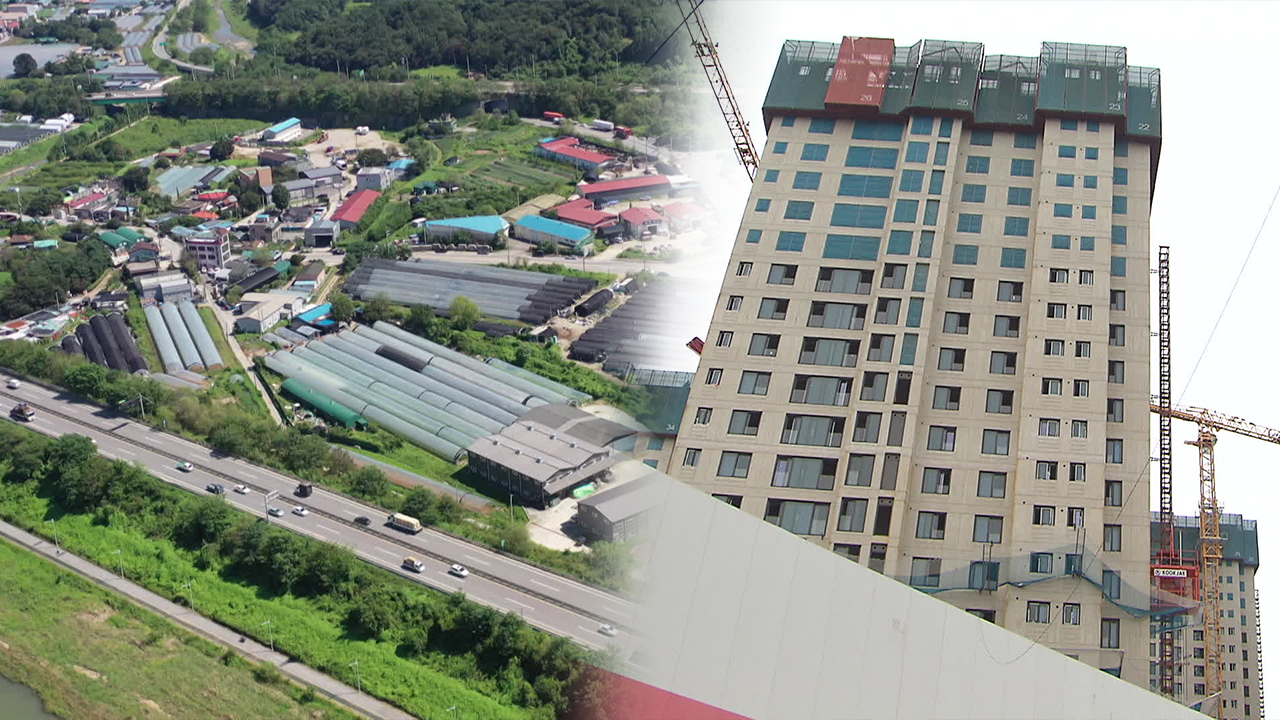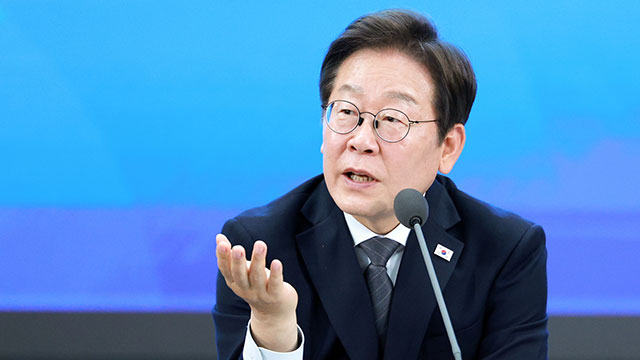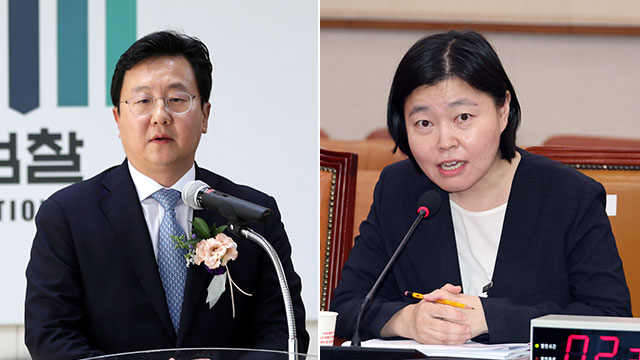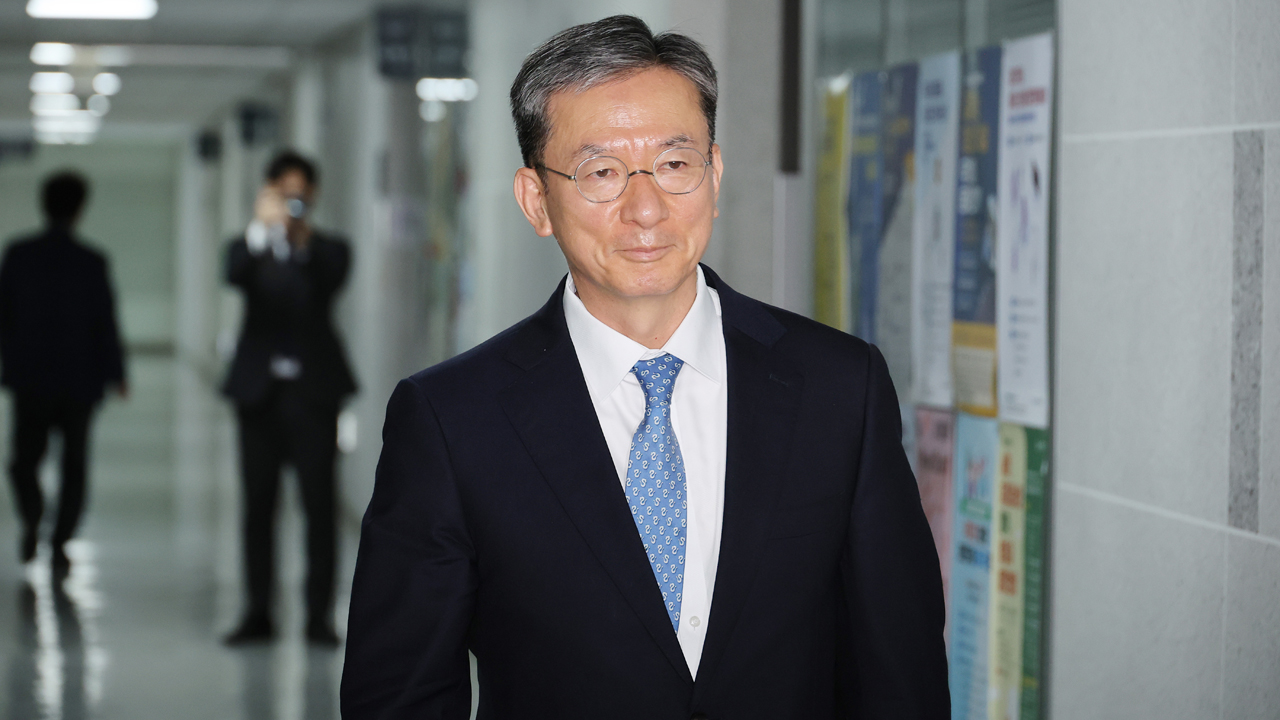Can the goal of stabilizing housing prices through large-scale supply be achieved?
입력 2024.11.06 (00:31)
읽어주기 기능은 크롬기반의
브라우저에서만 사용하실 수 있습니다.
[Anchor]
The government has announced housing supply measures, including the release of greenbelt land, to stabilize housing prices and alleviate concerns about supply shortages.
Reporter Choi Kwang-ho will continue to check whether housing supply can proceed as planned and whether there are concerns about overheating in the real estate market.
[Report]
Although the rate of increase has slowed compared to the announcement of the 8.8 measures, apartment prices in Seoul have continued to rise for 32 weeks.
The government believes that this signal for housing supply will reduce market anxiety and contribute to price stabilization.
[Park Sang-woo/Minister of Land, Infrastructure and Transport: "I think it is sufficient to give the belief that 'if you wait a little, quality housing in good locations will be supplied.' If that happens, it can also calm down the excessive demand that rushes to purchase housing."]
The issue is the speed of supply.
The government has set a goal of starting sales in 2029 and the first move-ins in 2031, but considering that it typically takes about 10 years to develop greenbelt land, this is a challenging task.
The third new town is expected to start moving in at the earliest in the year after next, which raises the need for additional short-term supply measures and price stabilization policies.
[Ham Young-jin/Head of Real Estate Research Lab at Woori Bank: "In 2025 and 2026, there will be a shortage of apartment completions, and since it is not possible to supply or move in housing immediately due to the designation of residential land, ..."]
There is also a need to be cautious about overheating in the real estate market in areas where greenbelt land has been released.
Apartments in the Segok district in Gangnam, which were developed after the previous release of greenbelt land, caused fluctuations in surrounding real estate due to the so-called 'lotto sale' controversy.
[Nearby real estate agent/voice altered: "There was not a single person who did not benefit. (With the release of greenbelt land) infrastructure came in, and housing that was not worth much saw prices soar."]
The government has selected over 1,700 cases of unusual land transactions in the released greenbelt areas to prevent speculation and has stated that it will proceed with follow-up measures, including police investigations.
This is KBS News, Choi Kwang-ho.
The government has announced housing supply measures, including the release of greenbelt land, to stabilize housing prices and alleviate concerns about supply shortages.
Reporter Choi Kwang-ho will continue to check whether housing supply can proceed as planned and whether there are concerns about overheating in the real estate market.
[Report]
Although the rate of increase has slowed compared to the announcement of the 8.8 measures, apartment prices in Seoul have continued to rise for 32 weeks.
The government believes that this signal for housing supply will reduce market anxiety and contribute to price stabilization.
[Park Sang-woo/Minister of Land, Infrastructure and Transport: "I think it is sufficient to give the belief that 'if you wait a little, quality housing in good locations will be supplied.' If that happens, it can also calm down the excessive demand that rushes to purchase housing."]
The issue is the speed of supply.
The government has set a goal of starting sales in 2029 and the first move-ins in 2031, but considering that it typically takes about 10 years to develop greenbelt land, this is a challenging task.
The third new town is expected to start moving in at the earliest in the year after next, which raises the need for additional short-term supply measures and price stabilization policies.
[Ham Young-jin/Head of Real Estate Research Lab at Woori Bank: "In 2025 and 2026, there will be a shortage of apartment completions, and since it is not possible to supply or move in housing immediately due to the designation of residential land, ..."]
There is also a need to be cautious about overheating in the real estate market in areas where greenbelt land has been released.
Apartments in the Segok district in Gangnam, which were developed after the previous release of greenbelt land, caused fluctuations in surrounding real estate due to the so-called 'lotto sale' controversy.
[Nearby real estate agent/voice altered: "There was not a single person who did not benefit. (With the release of greenbelt land) infrastructure came in, and housing that was not worth much saw prices soar."]
The government has selected over 1,700 cases of unusual land transactions in the released greenbelt areas to prevent speculation and has stated that it will proceed with follow-up measures, including police investigations.
This is KBS News, Choi Kwang-ho.
■ 제보하기
▷ 카카오톡 : 'KBS제보' 검색, 채널 추가
▷ 전화 : 02-781-1234, 4444
▷ 이메일 : kbs1234@kbs.co.kr
▷ 유튜브, 네이버, 카카오에서도 KBS뉴스를 구독해주세요!
- Can the goal of stabilizing housing prices through large-scale supply be achieved?
-
- 입력 2024-11-06 00:31:40

[Anchor]
The government has announced housing supply measures, including the release of greenbelt land, to stabilize housing prices and alleviate concerns about supply shortages.
Reporter Choi Kwang-ho will continue to check whether housing supply can proceed as planned and whether there are concerns about overheating in the real estate market.
[Report]
Although the rate of increase has slowed compared to the announcement of the 8.8 measures, apartment prices in Seoul have continued to rise for 32 weeks.
The government believes that this signal for housing supply will reduce market anxiety and contribute to price stabilization.
[Park Sang-woo/Minister of Land, Infrastructure and Transport: "I think it is sufficient to give the belief that 'if you wait a little, quality housing in good locations will be supplied.' If that happens, it can also calm down the excessive demand that rushes to purchase housing."]
The issue is the speed of supply.
The government has set a goal of starting sales in 2029 and the first move-ins in 2031, but considering that it typically takes about 10 years to develop greenbelt land, this is a challenging task.
The third new town is expected to start moving in at the earliest in the year after next, which raises the need for additional short-term supply measures and price stabilization policies.
[Ham Young-jin/Head of Real Estate Research Lab at Woori Bank: "In 2025 and 2026, there will be a shortage of apartment completions, and since it is not possible to supply or move in housing immediately due to the designation of residential land, ..."]
There is also a need to be cautious about overheating in the real estate market in areas where greenbelt land has been released.
Apartments in the Segok district in Gangnam, which were developed after the previous release of greenbelt land, caused fluctuations in surrounding real estate due to the so-called 'lotto sale' controversy.
[Nearby real estate agent/voice altered: "There was not a single person who did not benefit. (With the release of greenbelt land) infrastructure came in, and housing that was not worth much saw prices soar."]
The government has selected over 1,700 cases of unusual land transactions in the released greenbelt areas to prevent speculation and has stated that it will proceed with follow-up measures, including police investigations.
This is KBS News, Choi Kwang-ho.
The government has announced housing supply measures, including the release of greenbelt land, to stabilize housing prices and alleviate concerns about supply shortages.
Reporter Choi Kwang-ho will continue to check whether housing supply can proceed as planned and whether there are concerns about overheating in the real estate market.
[Report]
Although the rate of increase has slowed compared to the announcement of the 8.8 measures, apartment prices in Seoul have continued to rise for 32 weeks.
The government believes that this signal for housing supply will reduce market anxiety and contribute to price stabilization.
[Park Sang-woo/Minister of Land, Infrastructure and Transport: "I think it is sufficient to give the belief that 'if you wait a little, quality housing in good locations will be supplied.' If that happens, it can also calm down the excessive demand that rushes to purchase housing."]
The issue is the speed of supply.
The government has set a goal of starting sales in 2029 and the first move-ins in 2031, but considering that it typically takes about 10 years to develop greenbelt land, this is a challenging task.
The third new town is expected to start moving in at the earliest in the year after next, which raises the need for additional short-term supply measures and price stabilization policies.
[Ham Young-jin/Head of Real Estate Research Lab at Woori Bank: "In 2025 and 2026, there will be a shortage of apartment completions, and since it is not possible to supply or move in housing immediately due to the designation of residential land, ..."]
There is also a need to be cautious about overheating in the real estate market in areas where greenbelt land has been released.
Apartments in the Segok district in Gangnam, which were developed after the previous release of greenbelt land, caused fluctuations in surrounding real estate due to the so-called 'lotto sale' controversy.
[Nearby real estate agent/voice altered: "There was not a single person who did not benefit. (With the release of greenbelt land) infrastructure came in, and housing that was not worth much saw prices soar."]
The government has selected over 1,700 cases of unusual land transactions in the released greenbelt areas to prevent speculation and has stated that it will proceed with follow-up measures, including police investigations.
This is KBS News, Choi Kwang-ho.
-
-

최광호 기자 peace@kbs.co.kr
최광호 기자의 기사 모음
-
이 기사가 좋으셨다면
-
좋아요
0
-
응원해요
0
-
후속 원해요
0















이 기사에 대한 의견을 남겨주세요.